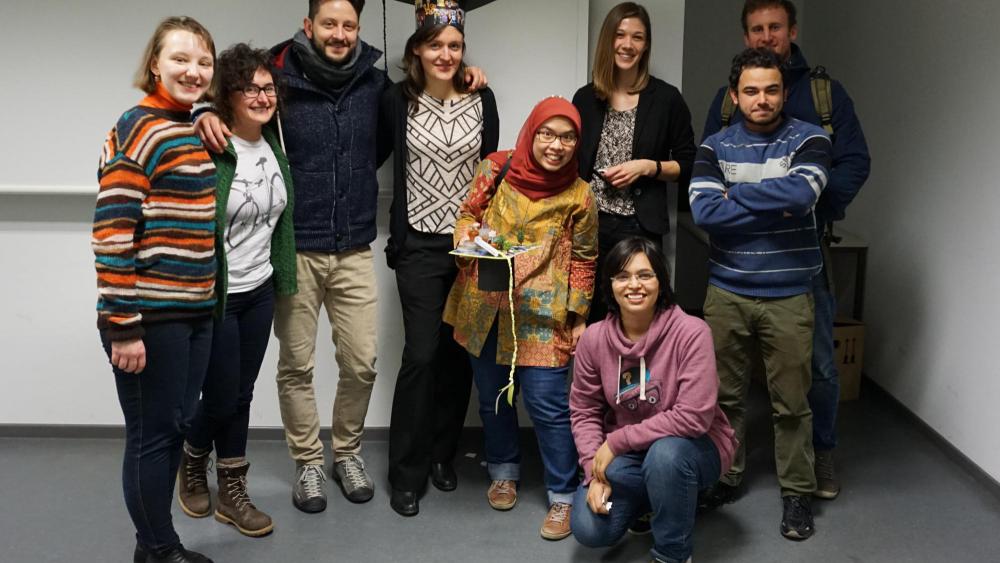SMART
Short profile
Duration

Francesca Pilotto, who completed her doctorate on the significance of dead wood in lowland rivers, was IGB's first graduate of the SMART research training programme in 2015. | Photo: Oleksandra Shumilova
The SMART Joint Doctorate focuses on the core areas of natural and engineering sciences relevant to the sustainable management of river systems from their headwaters to estuaries. SMART aims to provide education and research at PhD level by offering a 3-year programme within the Erasmus Mundus action. It adopts a multidisciplinary, multi-scale approach that integrates relevant aspects of the physical, chemical and biological sciences, including relevant theory, monitoring and modelling.
The SMART Programme focuses on the core areas of natural and engineering sciences relevant to the sustainable management of river systems from their headwaters to estuaries. Specifically it adopts a multidisciplinary, multi-scale approach that integrates relevant aspects of the physical, chemical and biological sciences, including relevant theory, monitoring and modelling techniques. The SMART EMJD is centred around three key components (research areas) of river science:
- ecosystem resilience to human and other stressors;
- the natural functioning of river-floodplain systems and
- the potential to rehabilitate compromised functions in impacted systems.
The aim of SMART is to provide education and research at PhD level that trains the doctoral candidate to think globally and co-work in multidisciplinary research teams. This will make SMART alumni attractive scientists/engineers for employment in EU and worldwide local and international institutions, universities, private companies, and research bodies. SMART is a multidisciplinary and inter-sectoral consortium composed of 3 partner universities with a decade of successful cooperation: University of Trento (Italy, Coordinator); Queen Mary University of London (United Kingdom) and Freie Universität of Berlin (Germany). Associate partners include 9 Universities, 4 Private Companies, 2 Government Agency and 4 Research Institutes covering 9 different countries and 4 continents.
All SMART partners have internationally recognized, long, tracked records in research and higher education, with complementary areas of expertise (Trento: environmental engineering and hydro-morphodynamics; London: geography and biogeochemistry; Berlin: freshwater ecology and biology), offering a unique set of instrumented field sites and experimental facilities for challenging research. The education and training of SMART PhD candidates (40 ECTS) will be detailed in a personal Career Development Plan including a common induction course, an annual research workshop and elective PhD courses organized by the Consortium Partners and Associates on transferable, specific research and language skills.The research activities (140 ECTS) will be multidisciplinary-based at a principal institution with mandatory mobility to a second Consortium partners and one Associate partner, thus providing each candidate a supervisory team of 3 scientists of the visited institutions. The Doctoral Candidates are required to present their research at international conferences and to publish in peer-reviewed journals. The PhD dissertation and defence will be in English. Successful completion of the PhD programme will be awarded a Joint Doctoral Degree in River Science.
EU (Erasmus Mundus Action)


